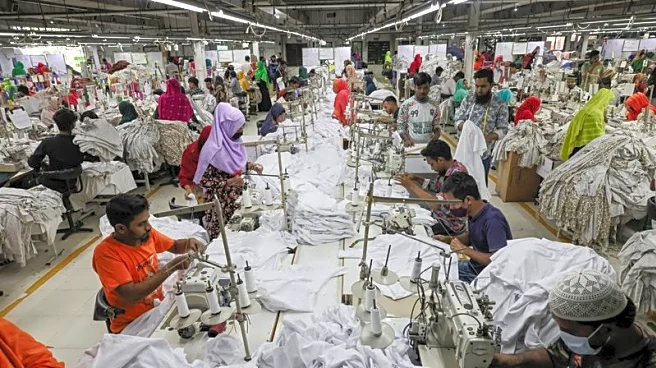What's Happening?
Waabi, a leader in physical artificial intelligence, has partnered with Volvo to introduce a new autonomous trucking solution. The collaboration integrates Waabi's AI-driven Waabi Driver with Volvo's VNL
Autonomous truck, marking a significant step towards scalable Level 4 autonomous trucking. This development is supported by NVIDIA's DRIVE AGX Thor and Hyperion 10 architecture, enhancing the truck's safety and operational capabilities. The partnership aims to address challenges in the U.S. freight market, such as driver shortages and increasing demand, by offering a reliable autonomous solution. Volvo's New River Valley plant in Virginia is producing these trucks, equipped with redundant systems to ensure safe driverless operations.
Why It's Important?
The introduction of autonomous trucks could revolutionize the U.S. freight industry by improving safety and efficiency. With the ability to operate longer hours than human drivers, these trucks could reduce shipping delays and lower transportation costs. The collaboration between Waabi and Volvo highlights the growing role of artificial intelligence in transforming logistics and transportation. However, the shift towards automation raises concerns about job displacement for millions of truck drivers, necessitating retraining programs. Additionally, safety and cybersecurity remain critical issues as these trucks rely on constant cloud connectivity.
What's Next?
As Waabi and Volvo continue to develop their autonomous trucking platform, regulatory approval for nationwide deployment remains a key hurdle. The companies will need to demonstrate the safety and reliability of their systems through extensive testing and trials. Public perception and trust in autonomous vehicles will also play a significant role in the adoption rate. Stakeholders, including labor groups and policymakers, are likely to push for measures that address employment impacts and ensure data privacy and security.
Beyond the Headlines
The broader implications of autonomous trucking extend beyond logistics. The technology could lead to significant reductions in road accidents caused by human error, potentially saving lives and reducing insurance costs. Moreover, the environmental impact of more efficient freight operations could contribute to sustainability goals. As AI continues to advance, the integration of autonomous systems in various industries may redefine traditional business models and societal norms.












